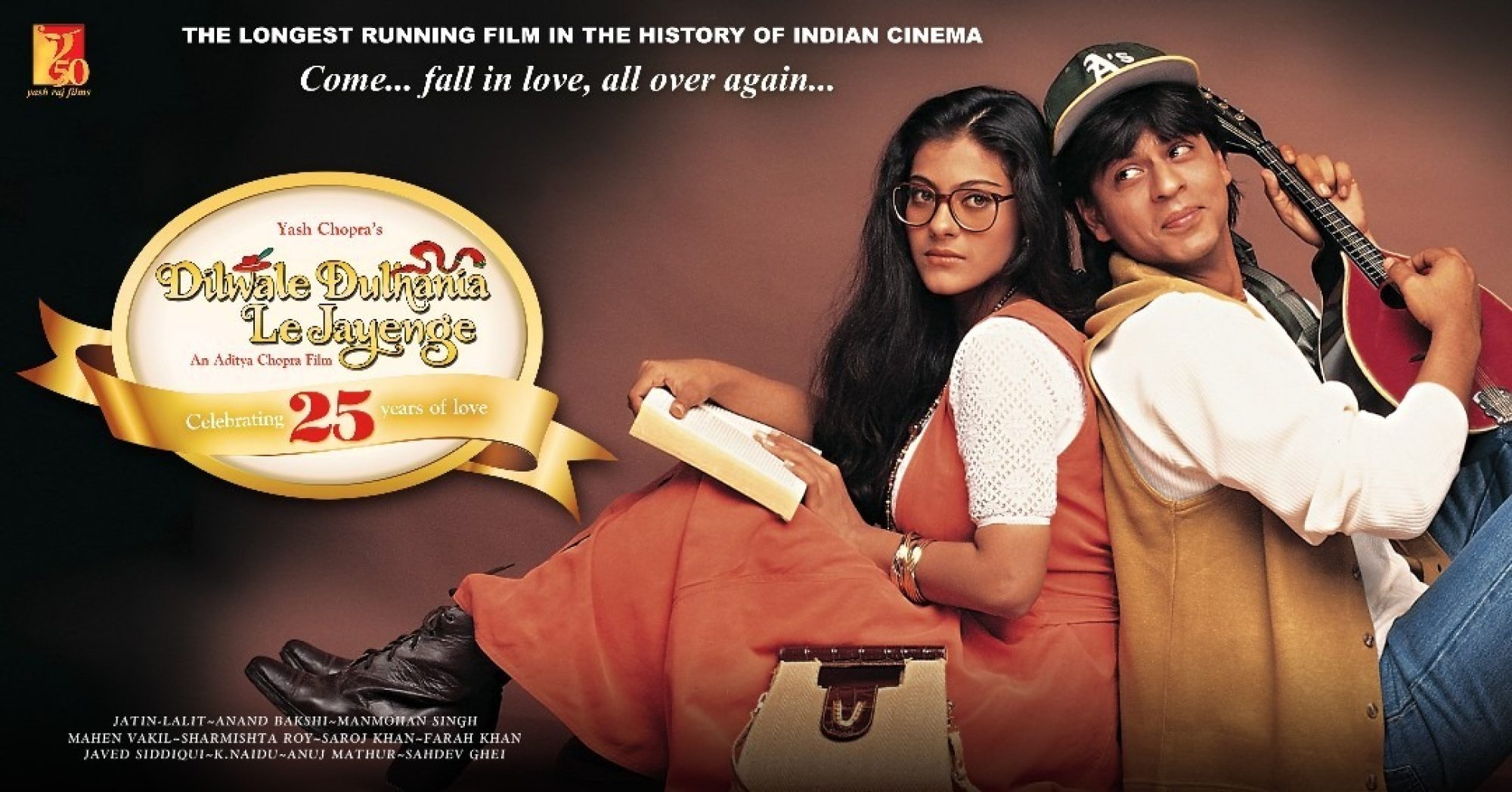
Is DDLJ’s US musical a tale of love and diversity, or ‘whitewashing’ of Indian culture?
- One of Bollywood’s most beloved romance films, DDLJ has breathed a second life as a musical starring UK actor Austin Colby and Indian-American actress Shoba Narayan
- Fans of the 1995 hit film that starred Shah Rukh Khan and Kajol Devgan have pushed back against the character changes, but others support the modern retelling of the iconic love story
As Indian-Americans anticipate the day a much-loved Bollywood musical romance will reach Broadway, the US staging of DDLJ continues to be mired in controversy over its producers’ decision to cast a white actor in the lead male role.
DDLJ was first released in 1995 in India and is so iconic, it continues to be screened today at a cinema in Mumbai, where tickets are sold for around 40 rupees (US$0.50). One projectionist is said to have watched the film more than 9,000 times.
DDLJ tells the story of two young Indians living in Britain – Raj (Shah Rukh Khan), and Simran (Kajol Devgan) – who meet after missing a train to Switzerland and fall in love during a European summer of fun. They part ways back in London but later cement their relationship despite parental opposition. Simran’s father relents in a moment of epiphany, with the memorable line “Ja Simran ja, jee le apni zindagi” (“Go Simran, go, live your life”), and she races after a moving train to join Raj.
Tamil epic Ponniyin Selvan 1 leaves India, Malaysia, Singapore viewers riveted
The US stage musical, Come Fall in Love, has a similar plot but a key difference is that Simran is now an Indian-American, who falls in love with not Raj but Roger (Rog), a white American.
Its makers say the show, which opened in San Diego last September, is a celebration of two cultures, with British actor Austin Colby and US actress Shoba Narayan heading the cast of 30.
But fans of DDLJ – the acronym for Dilwale Dulhania Le Jayenge (which loosely translates to ‘the brave-hearted will take the bride home’) – say the casting was a missed opportunity and an instance of whitewashing.
Celebrity chef Vikas Khanna tweeted: “What if Shawshank Redemption was made on Broadway, and Morgan Freeman was replaced by white actor, is that inclusivity?”
Actor Colby has said he is aware what his involvement means to many people, “and I completely understand its impact. I’m not the Raj that Shah Rukh Khan made us fall in love with, nor will I ever pretend to be”.

Even as the optics of the casting comes at a time of a shift towards cultural diversity in storytelling, perhaps the change actually came decades earlier.
DDLJ filmmaker Aditya Chopra, who also directs the stage version, revealed last year that he originally envisaged the film to be “a Hollywood love story of a white American man and an Indian woman”, adding that his motivation at the time “was to present Indian culture and values to a global audience”.
“Years later, as I reimagine the story as a Broadway musical, my mainstay is still the same, showcasing Indian culture to a world audience,” he told Variety.
Some agree with Chopra. “The decision of the director to have a white male as Raj/Rog in the musical will inevitably raise eyebrows for Bollywood fans for whom Raj and Simran cannot be replaced, and for immigrant South Asian parents who are persuaded by DDLJ’s pedagogical narrative of how to bring up their children in North America or Europe,” said Dr Chandrima Chakraborty, a cultural studies professor at McMaster University in Canada’s Ontario.
But the shift to a love story “between a white man and a South Asian woman will allow the musical to draw in audiences beyond South Asians and with it the opportunity to raise the cultural understanding of non-South Asians”, she added.

Others who have enjoyed the stage version praised its portrayal of Simran, including the San Diego Union Tribune which talked of the transformation of the film’s heroine “into a fresh, smart, feminist and modern Indian-American woman”.
Shalini Mullick, 48, a doctor and novelist based in the northern Indian state of Haryana, said DDLJ “was instrumental” in shaping her generation’s ideas of romance. “I must have seen it at least eight times in the cinema, and every time it was on TV, turned it on – a low stress, soothing presence.”
But over the years, she began to see flaws she did not notice before. “As one grew older, of course we realised the misogyny and stereotypes, and how Shah Rukh Khan’s character was actually stalking Devgan Kajol’s character,” she said. “But as a naive 20-year-old then – as opposed to the [more] aware 20-year-olds of today – it was just about romance and fun for us.”

Karishma Upadhyay, an Indian film critic and author, said the “enduring charm” of the DDLJ comes from it being “wholesome family entertainment” and presenting an overseas Indian family “as essentially Indian at heart”.
“I was at that age where it was a magical thought to be able to travel without your parents, and see the world like Kajol and Shah Rukh Khan were doing in the movie,” she said. “This was also the time of liberalisation in India with the economy opening up and people able to travel abroad.”
Whether on Broadway or in cinemas, though, the timeless popularity of Raj and Simran’s love story, as expressed by noted British film critic Scott Jordan Harris, is in large part due to its two opposing, and still relevant, themes.
“It argues that we should follow our hearts and chase happiness wherever it leads, regardless of the obstacles in our paths, while simultaneously suggesting we should respect the ways of our elders, particularly our parents, and do nothing that challenges their will,” he wrote in 2014.

